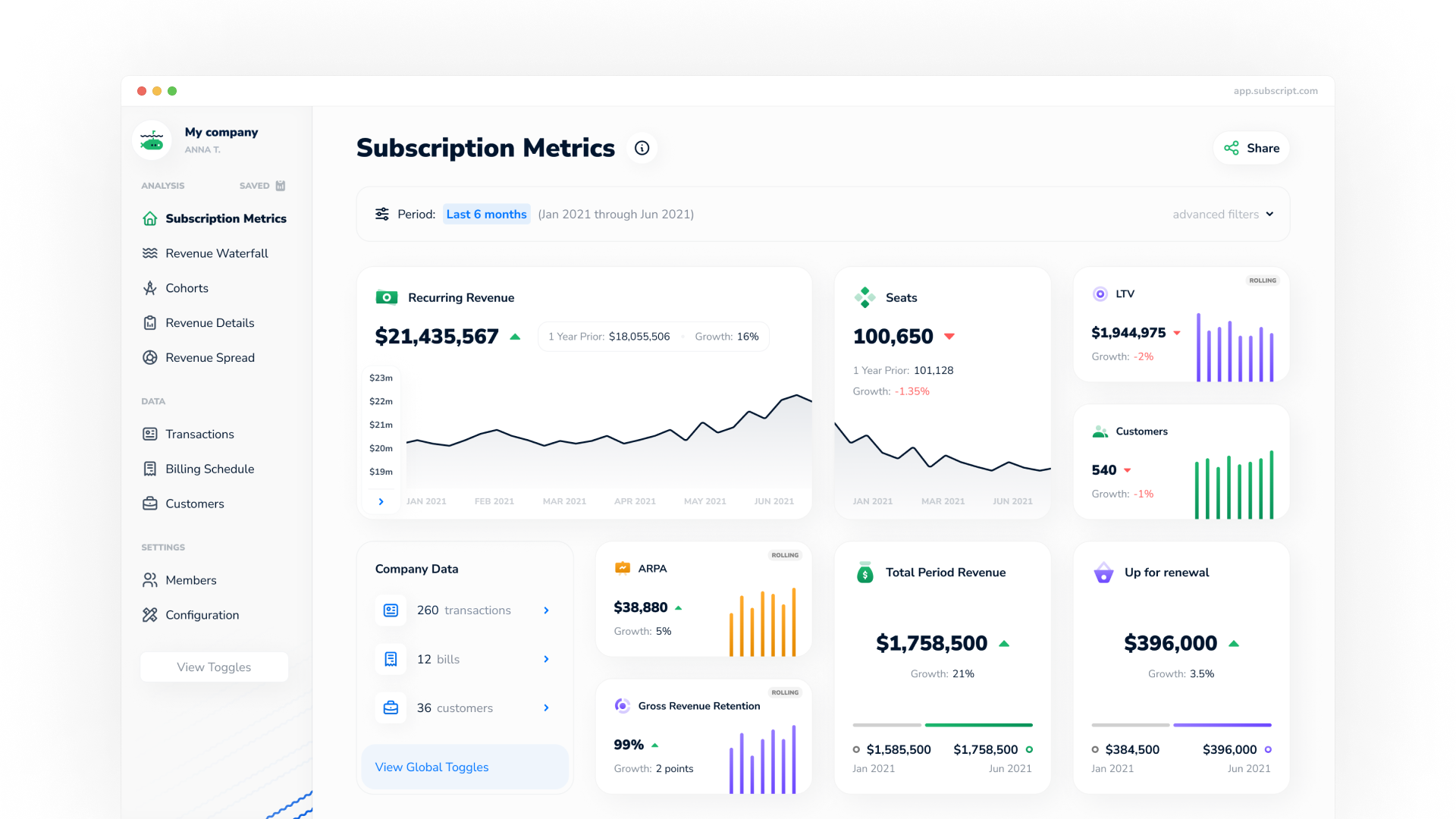Sidharth Kakkar knows all about the pain of relying on a giant spreadsheet. While building his previous company, Freckle Education, it got to the point where the master spreadsheet full of data that everyone was using would not load anymore or would crash the computer.
His company eventually was bought, but that pain point stuck with him, so when Kakkar left, he started doing discovery interviews on how other companies dealt with what he called “spreadsheet nightmares.”
“One of my favorites was a CFO who took a company public, and on the roadshow, people would ask for all of these cohorts, and his team would go nuts putting them together just for the roadshow and literally never did anything with them again,” Kakkar recalled.
That’s when he and Michelle Lee, his first bizops hire, decided to start the subscription intelligence startup Subscript in December 2020. Targeting subscription-based SaaS companies, Subscript develops APIs that grab data from CRMs, general ledgers and billing products and organizes it so the data is not only easy to find, but provides up-to-date subscription revenue metrics.
Kakkar says subscription business has been on a “ridiculous tear” recently, but while they like the idea of returning or recurring customers, not everyone wants to use the language of subscriptions to make business decisions.
The company, still in beta, brought in $3.75 million in seed funding, led by First Round, with participation from 40 angel investors, including Plaid CTO Jean-Denis Greze, Pilot founder Waseem Daher, CircleCI + Dark founder Paul Biggar, Postman’s head of growth Jesse Miller and Gusto’s head of growth Allen Wo.

Subscript product dashboard. Image Credits: Subscript
Subscript creates custom data pipelines, and the pipelines create what he called a “revenue source of truth” in Subscript. For example, if someone closes a deal in Salesforce for $1 million in bookings, the system will separate out what is considered one-time revenue and recurring revenue. The finance person will have the final say on what they are seeing.
From there, the user can slice and dice the data into what they need for investors, board of directors and leadership teams to make data-driven decisions.
“You can have the big decision points that leadership teams are looking at and also use it for course-correction,” Kakkar said. “Sometimes you don’t know in the middle of a quarter whether you’re going to hit your number, where you’re headed and how things are going.”
Subscript is working with 21 customers right now, including Circle and Flipcause, and is tracking over $100 million of customers’ revenue. Kakkar said that is a number the company looks at internally as an indication of the scale of the business.
The company is opening up its beta and will use the new funding to build the team and product. Due to still being early in the journey and building a complex product, Kakkar said adding more people will be key in engineering and market support fictions.
As more companies structure their business models to accommodate the type of recurring customers that subscription-based businesses have, Subscript is seeing how expansive the opportunities are for accommodating those types of ideas, like usage-based billing.
“That model is becoming really common,” Kakkar added. “There is a depth of complexity in those types of businesses that we are diving headfirst into, but it’s impossible to do it without software.”

